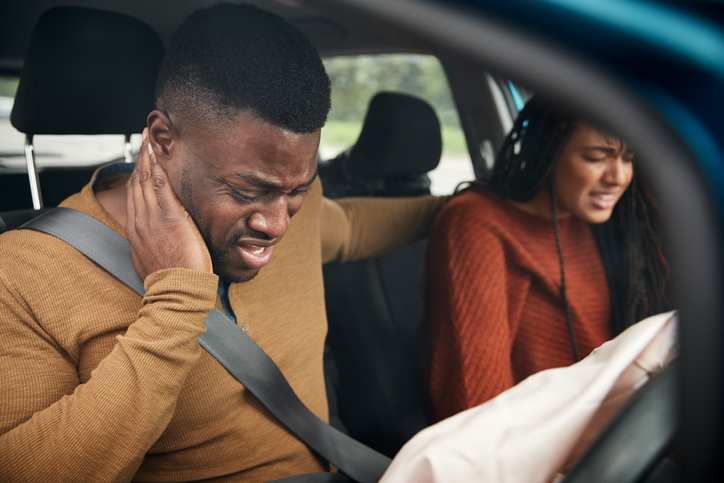Auto accidents can be terrifying, for drivers and passengers alike. As someone who is only along for the ride and not sitting behind the wheel, traversing the aftermath of an accident can be complicated and stressful.
Following the initial shock of the accident, and after any injuries you’ve sustained are on the mend, you may begin to wonder what legal rights you have as a passenger — and how best to explore your options.
Four things passengers of car accidents should know
The good news is that passengers in automobile accidents do indeed have legal rights — and often greater opportunities for financial compensation and legal support than drivers. Having an experienced personal injury lawyer on your side is key, and understanding some accident basics is helpful, too.
The following insights are important pointers to understand if you’ve been involved in an accident.
- In North Carolina, if negligence or careless driving causes an injury accident, a passenger can file a claim against any driver who may share blame for the accident and petition to collect money for medical bills, loss of income, and/or pain and suffering. For example, if two drivers cause an accident, a passenger traveling in either car can collect from both drivers’ insurance policies.
Additionally, once the liability insurance coverage is maxed out, a vehicle passenger may also lean into their own car insurance policy (or other policies within the family) to collect money through their Uninsured motorist coverage (UIM). This type of coverage is stackable in North Carolina — meaning passengers are able to collect money from multiple policies, once they collect from all other liability insurance limits. - After a passenger proves the liability of one or more drivers, they may be able to file for payment of money damages. In this case, “damages” refer to any costs that may have resulted from the crash — as well as emotional pain and suffering.
- Working with a personal injury lawyer can help you negotiate with insurance companies following a vehicle collision and can help you gain a settlement. The nuances of managing the legality and liability of an auto accident are complex. Your lawyer can help you receive your fair and full compensation. This is particularly true if the total of your injury claims is larger than the person’s insurance who caused the accident. And, if there is a multi-car accident to be managed, complexities increase (and you may be able to get compensation from all drivers’ insurances).
- There are a few instances in which you, as a passenger, may not have the right to compensation. Something called “the doctrine of contributory negligence” prevents you from receiving money and this is a defense occasionally leveraged by a defense attorney.
For example, if you were aware that the driver of your car was impaired or intoxicated or you contributed to the driver losing control of the vehicle (like grabbing the wheel), you may have no payment rights. In cases like these, a personal injury lawyer will help you review your options and build a legal strategy. - Passengers often choose to forfeit their claims when they are riding with a friend or family member who causes an accident — there’s a good reason not to do this. If you’re a passenger in a car with a friend or family member, filing a claim doesn’t need to cause strife. Here’s why: After an accident, insurance companies will audit the accident independently of your claim and likely increase the driver’s premiums. Your claim won’t affect that premium.
Hiring a personal injury attorney
Getting legal support and assistance can help you prove losses related to your accident; and, validating those losses can go a long way in helping you feel more financially secure. Please give our team at Wilson Williams Law a call today at (888) 253-4071. We look forward to learning about your case, ensuring your rights as a passenger are upheld, and getting you the compensation you deserve.
Note: This blog is intended to be informational only and shall not be construed as legal advice.


